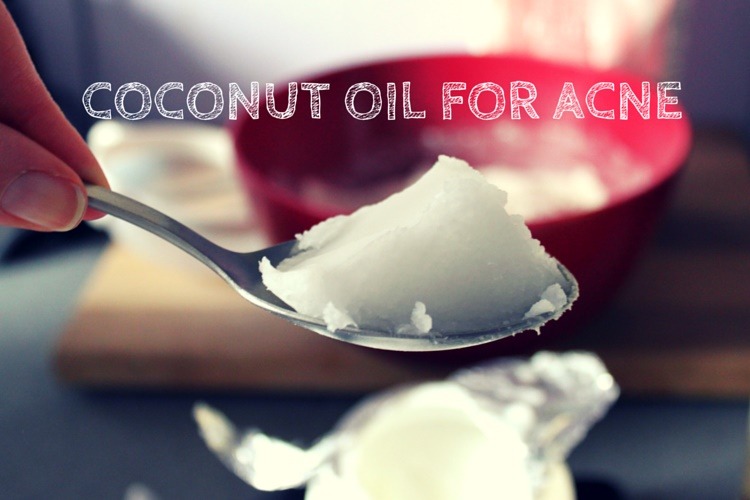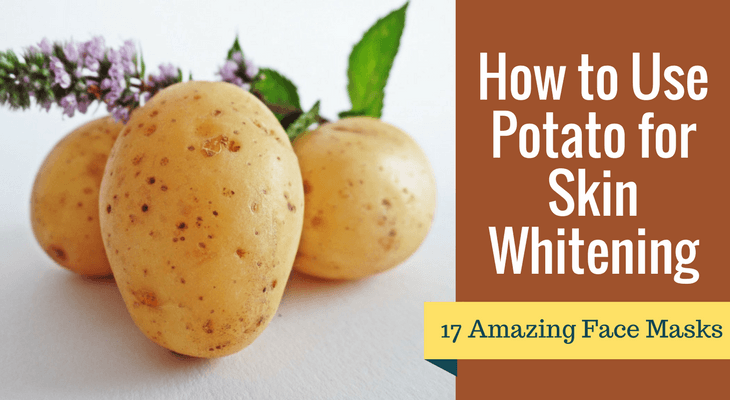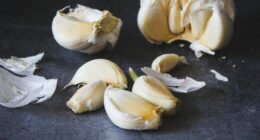 You notice this terrible sharp pain in your throat when you attempt to swallow, and this discomfort comes with a runny nose, cough, and chills, then you are most likely having a sore throat.
You notice this terrible sharp pain in your throat when you attempt to swallow, and this discomfort comes with a runny nose, cough, and chills, then you are most likely having a sore throat.
If you are down with sore throat, you are not alone as hundreds of thousands of patients visit their doctors every day for this common symptom.
In the clinical setting, sore throat is called pharyngitis which is an inflammation of the pharynx (and/or the tonsils), the upper part of the gullet and inner part of the mouth cavity. Sore throat occurs most commonly in children, especially those between the ages of 4 and 7 years.
If the tonsils are involved, it is called pharyngo-tonsillitis.
I would enlighten you on the causes of a sore throat and what you could do to resolve the symptom and get back to swallowing sushi with ease.
[toc]Causes of Sore throat
A sore throat can be caused by a number of factors including infective agents (virus, bacteria, fungus), allergies, poisonous substances, chemical injuries such as from ingestion of caustic chemicals, physical injury such as from swallowing fishbone, acid reflux, smoking, dry air, and rarely tumours. However, infective agents are the major causes of a sore throat.
If it’s due to infective agents, then here’s how to identify whether it is due to virus or bacteria…
Virus: Symptoms of sore throat caused by virus include cough or a painful pink eye before or accompanying the sore throat.
Bacteria: Symptoms of sore throat caused by bacteria include swelling of the nodes in your neck, headache, sudden onset sore throat, high fever and severe pain while swallowing.
How to cure sore throat?
Home remedies might be all you would ever need for a sore throat caused by viruses. However, for sore throat caused by other bacteria, fungus and physical or chemical injuries, treating the root cause appropriately is necessary if you want the resolve it. Home remedies can provide you some symptomatic relief in these cases until you consult a doctor for definitive treatment.
Home Remedies for Treating Sore Throat
Lifestyle and dietary modifications can provide you with excellent relief of symptoms from a sore throat. These home remedies include the following;
1. Salt water gargle
This is very important and would do you a lot of good to relieve the inflammation in the throat. Warm salt water adds moisture to the throat, to prevent dryness which worsens the throat irritation.
- Add 1 teaspoon of salt in 240ml of warm water.
- Use this solution to gargle for up to 6 times in a day to get sufficient relief.
Note: More than the specified amounts of gargling can dry out the healthy soft tissue and make things worse.
2. Chamomile Tea
It has been found to have antibacterial and analgesic properties making it beneficial for use in the relief of symptoms associated with sore throat. Chamomile tea is well known to calm anxiety and create a sense of calmness.
- Boil 1 cup of water and pour it into a mug.
- Add 1 chamomile tea bag into it and cover it.
- Let it steep for 10 minutes.
- Add some honey and lemon as per taste and drink it.
3. Honey
Honey is very well known for its sweet taste. You might be aware of its ability to fight infections, it also helps to relieve pain making it very effective for the treatment of sore throat. Honey is most effective when combined with apple cider vinegar and warm water. Apple cider vinegar contains high levels of acidity which can kill bacteria effectively.
- Into a cup of warm water, add 1 tablespoon each of ACV and honey.
- Stir well and consume it while it’s still warm.
Alternative: If you don’t like to consume it, add 2 tablespoons of ACV into 1/2 cup of water and use this solution to gargle once in a day.
Note: However, because it contains a high amount of sugar, it should be avoided by diabetics and those on a low carbohydrate diet.
Furthermore children below the age of one should not be given honey because of the presence of botulinum spores therein which may cause disease since the gut protective bacterial population is immature at that age.
4. Cayenne
The chemical compound called capsaicin provides relief from pain temporarily. It hinders the substance called P that transmits the pain signal to your brain.
- Into a cup of hot water, add 1/2 teaspoon of cayenne pepper.
- Add honey as per taste and let it cool down to lukewarm.
- Stir well and consume it.
Note: Make sure to stir in between the sipping as the cayenne pepper might settle down. If you are sensitive to spice then reduce the pepper to 1/8 teaspoon.
5. Hydrogen Peroxide Gargle
Hydrogen peroxide is effective in fighting off the bacteria causing sore throat.
- Add 1 cap-full of hydrogen peroxide into your drinking cup.
- Warm up some water and add over it.
- Use it to gargle and spit out the liquid.
Note: If you cannot stand the taste then add some honey into it.
6. Baking Soda
It contains antibacterial properties that deals with germs that are causing the sore throat. Its slightly alkaline pH soothes the swollen tissues in the throat.
- Heat 1 cup of water until lukewarm.
- Add 1/2 teaspoon each of salt and baking soda.
- Sip some of the solution and let it stir for moment and gargle.
- Repeat the process twice in a row for 3 times in a day.
7. Lemon Water
Consuming lemon water is another effective home remedy for curing sore throat. Lemon water is rich in antioxidants which reduce the inflammation in the throat. Lemon water also contains vitamin C which promotes healing of a sore throat.
Effects of lemon water are optimal when combined with warm water and honey.
8. Marshmallow Root
The marshmallow root contains a substance called mucilage which helps to coat and lubricate the throat when swallowing. Marshmallow root is contained in some types of throat lozenges to provide relief from the discomfort and throat soreness.
Process 1:
- Submerge 1 ounce of marshmallow root ties in a bundle of cheesecloth into 1 litre of cold water.
- Ensure the bundle has a tied end which you should place over the lip of the jar and kept in position by closing the jar with its lid.
- Let the bundle remain in the water for at least eight hours, then remove it.
- Pour the amount you wish into a glass and add a sweetener if you desire.
- Sip the preparation to help relieve the soreness in the throat.
Process 2:
- Into a mug of boiling water, add 1 tablespoon of dried marshmallow root.
- Cover and let it steep for 30 – 60 minutes.
- Strain and consume the drink.
- Add sweetener if required.
Note: If you are diabetic then consult your doctor before using marshmallow root as it may lower your blood sugar.
9. Licorice root
Licorice is a plant which has been used as a natural treatment for a number of illnesses. Licorice has analgesic properties making it effective to relieve you of the soreness in your throat. It also contains anti-inflammatory and anti-viral properties which reduce the irritation, swelling associated with sore throat. It also soothes the mucus membranes in the throat.
You can get licorice root tea in grocery stores and can prepare it either to drink or gargle. Here’s how you prepare it; you add ground licorice root into hot water and wait for about five minutes, then strain before you drink it.
- Into a glass bowl, add 1 cup of chopped dry licorice root, 1/2 cup cinnamon chips, 2 tablespoons of whole cloves and 1/2 cup chamomile flowers.
- Mix well and store the mixture in a glass jar.
- Add 3 heaping teaspoons of the mixture into 2.5 cups of cold water.
- Bring the mixture to boil over a medium heat.
- Reduce the heat to low and let the mixture simmer for 10 minutes.
- Strain the tea and sip slowly.
Note: You can store the remaining mixture for future use. Store it in a dark place away from direct sunlight.
10. Coconut oil
Among other health benefits, coconut oil has anti inflammatory and analgesic properties, thus providing you with soothing relief when you drink it.
You can prepare a drink of coconut oil by adding a spoonful to hot cocoa, soup, or hot tea, then put a spoonful of this preparation in your mouth and allow to melt in the throat
You should not take more than 2 tablespoons of coconut oil daily as it may cause constipation by reducing bowel movements.
11. Steam inhalation
This works in the same way as warm water gargle. Inhaling steam from warm salt water moistens the airways relieving the swelling and dryness of the airway.
- Boil a pot of water and remove from the flame.
- Lean over the bowl, drape the towel over your head like a tent.
- Add 3 – 4 drops of eucalyptus oil into the hot water.
- Inhale the steam for some time and relax.
Note: Alternatively, you can take a hot shower and let the bathroom steam up to get some relief.
12. Garlic
The allicin compound present in garlic contains antibacterial properties which kill the bacteria or germs causing pain and irritation. It is one of the best remedies to kick off the sore throat.
- Place a garlic clove in each cheek.
- Suck it on like cough drop.
- Occasionally, crush the garlic to release its juices.
- Repeat the process once in a day.
13. Honeysuckle
Honeysuckle is one of the effective ways for easing coughs, flu and sore throat symptoms. Its antibacterial properties can help to ward off the bacteria from your system.
It helps to flush out the toxins from the blood stream. Its anti-inflammatory properties provide relief from swelling tissues in the throat.
- Add 2 cups of honey suckle flowers and leaves (preferably fresh) into 1 quart of water.
- Boil the mixture for 10 minutes and remove from the flame.
- Strain, add honey or lemon if required and consume it.
14. Cloves
Cloves contain eugenol which is a natural pain killer substance. It also contains antibacterial properties.
- Chew on some whole cloves slowly as if it were gum.
- After few minutes, you can either swallow it or spit it out.
- Drink a glass of water after it.
Note: Avoid substituting whole cloves with clove oil as it may cause stomach upset.
15. Pomegranate
They contain antioxidants and astringents which helps to reduce the swelling and also provide relief from other sore throat symptoms.
- Peel the pomegranate and collect the rinds.
- Add to 4 cups of water and let it boil for 15 minutes.
- Remove from the flame and drink it or gargle with it.
Note: Drinking a glass of pomegranate juice at least 3 times in a day can help as well.
16. Ginger
Ginger contains expectorant properties which helps to loosen and expect the mucus accumulated in the respiratory system. It helps to flush out the toxins, increase oxygen, improve blood circulation and fight off the bacteria.
- Peel and chop ginger into small chunks.
- Add them into 2 – 3 cups of water and place it over medium heat.
- Simmer for 3 – 5 minutes and remove from the flame.
- Strain, add some honey for taste and consume it.
17. Sage
It contains astringent properties which causes the body tissues to contact and reduce the swelling. The phenolic acids in sage fight and kill the bad bacteria which is one of the big contributors of sore throat.
- Boil 1 cup of water and add 2 teaspoons of sage (fresh or dried) into it.
- Cover and let it steep for 20 minutes.
- Strain and stir in 1/4 teaspoon of salt.
- Use this solution to gargle as needed.
18. Cinnamon
It contains antioxidants which helps to reduce the swelling of mucus membranes. Its aroma helps to open up the sinuses which reduce the mucus production.
- Bring 1 1/2 cup of water to boil.
- Add 1 – 2 cinnamon sticks and let it simmer for 2 – 3 minutes.
- Stain and add 1 herbal tea bag of your choice.
- Let it steep for few minutes and consume it.
Tips and Precautions
Here are few general tips and precautions to consider for sore throat. Make sure to follow them to improve your condition.
1. Throat Lozenges
You can get these from a pharmacy without a doctor’s prescription. These lozenges usually contain an anesthetic agent which numbs the pain in the throat. We recommend you to get the sugar-free lozenges.
2. Air humidifiers and Vaporizers
Dry Air makes the inflamed airway passages more irritated, causing progression of the inflammation. Vaporizers and humidifiers provide moisture which help to damping and soothe the throat providing significant symptomatic relief.
If you do not have a humidifier, you can use a pan of water kept safe in a corner of your bedroom, water is evaporated from the pan to moisten the air. Additionally, if you use an air conditioning system, ensure you clean the filters as dust or other particles trapped in the filters and vents are redistributed in the air worsening the symptoms.
3. Avoid smoking
Smoking releases chemicals which potentiate inflammation and damage to the linings of the throat. Even second-hand smoking or what is also called passive smoking does as much damage to you when you have a sore throat.
Passive smoking is inhaling smoke from tobacco smoke of a nearby smoker. I would advise that you quit smoking to expedite relief from a sore throat.
4. Decongestants
If you have a runny nose along with a sore throat, decongestants would help give you some relief. You can also get these drugs without a doctor’s prescription. They act by shrinking the swelling in the linings of the airway allowing air to pass freely. They inhibit postnasal drip which, in turn, relieves a sore throat.
Decongestants come in different forms including tablets, nasal drops and nasal sprays. The medications may not be safe in children and persons with some conditions, so it is safe for you to read the label before using it.
5. Anti-reflux strategies
If your sore throat is as a result of heartburn, these tips I would mention below would provide significant relief. These tips reduce acid reflux to the throat and they include: Elevating the head of your bed when you lie down, not sleeping within 3 hours of eating, avoiding coffee, fried and spicy foods, fatty meals, and alcohol all of which promote acid reflux.
6. Avoid Irritants
If your symptoms result from an allergic reaction, you should avoid the triggers such as dust, pollen, pets, strong smell and ensure your bedding and clothing are washed in warm water and with mild detergents. Avoiding these triggers relieve the nasal congestion, which in turn, limits postnasal drip which further alleviates a sore throat
7. Drink lots of Fluids
This keeps you hydrated and moistens the inflamed linings of the throat, therefore bringing you some relief from the soreness in the throat. You can also take hot fluids such as tea or coffee, the warmth from these fluids also reduces the inflammation and irritation in the throat. Apart from you can just drink water, orange juice, herbal tea or any liquid you deem appropriate. However, avoid taking alcohol and caffeine as they can restrict your body’s ability to fight off the infection.
8. Avoid or Drink Milk
Consuming warm milk can be soothing, relaxing and non-irritating but this is not true in all cases of sore throat. If you have sore throat along with congestion then it is better to avoid milk. Because the milk increases mucus production and coats the throat which may not be helpful in treating sore throat. If you have dry or sore throat, then milk with some honey can be enough to provide relief.
9. Take Foods and Drinks at Moderate Temperatures
Drinking a glass of ice water might be relaxing but actually the temperature can cause throat pain. Same thing goes for hot-while teas and soups. So, it is better to let the liquids or foods come to room temperature before consuming. So, avoid taking popsicles and ice-creams until you get relief from sore throat.
10. Use pain relief medications
There are medications which relieve the soreness in the throat, these drugs can be got without a doctor’s prescription. Examples of these include acetaminophen, advil, aspirin, and diclofenac. I would also advise that you check the labels of these drugs for instructions of use and contraindications. Aspirin for example, is unsafe for use in children and pregnant women.
If home remedies do not provide symptomatic relief within 2 weeks, if the symptoms become more severe and frequent, or if other symptoms such as fever, difficulty breathing, and rash develops while employing the home remedies, it is best to visit your doctor promptly.
Sore Throat Causes in Detail
As you have already read, viruses are the most common causes of sore throat and common causative viruses include adenovirus, herpes virus, influenza virus, and Epstein-Barr virus. You get these viruses from people who have upper respiratory tract infections or pink eye (conjunctivitis) caused by them. When the droplets from the cough, nasal secretions or tears of these persons get to your hand via direct touch or touching contaminated objects and you eat without washing those hands, you introduce the viruses to your mouth and throat.
Sore throat caused by herpes simplex virus is contracted via oral sex and usually also presents with presence of small vesicles and sores in the mouth.
Bacteria are the second commonest causes of sore throat, and these are usually more feared than viral sore throat. The commonest bacterial cause of sore throat is Group A beta-haemolytic streptococcus (GABHS). Other bacterial causes include chlamydia and that which causes diphtheria.
Fungi is another common cause of sore throat. Doctors call this oesophageal candidiasis or oesophageal thrush. You are likely to get this condition when you are on some medications or have some conditions which reduce your immunity or number of healthy bacteria in your throat.
Therefore, legal steroids, overuse of antibiotics, chemotherapy for cancer, HIV, and cancer are all risk factors of a fungal sore throat.
How do Doctors Cure Sore Throat?
If you present to a doctor who suspects that you have a sore throat, he would schedule you for some blood work and throat culture.
Your blood sample would be collected to detect the antigen of GABHS, the commonest bacterial cause of sore throat. Other investigations would involve analysing the blood cell count. Throat culture involves taking a swab from the tonsils and pharynx and sending to the laboratory to find out if a bacterium was responsible for the sore throat. This swab sample can also be viewed under a microscope after processing with some chemicals to detect other causative microorganisms.
Your doctors might recommend that you do some imaging studies such as X-ray of the neck to exclude more severe causes of sore throat or complications thereof such as throat abscess.
Medicines can also be used to treat sore throat
For sore throat caused by GABHS, your doctor would prescribe antibacterial medications especially penicillin. Oral penicillin is the drug of choice for the treatment of bacterial pharyngitis and your doctor would place you on a 7 to 10-day course of penicillin.
If you are noted to be allergic to penicillin, an alternative drug your doctor might prescribe is erythromycin or any drug under a broad group called cephalosporins. Penicillin inhibits the coating of the bacterial cell, thereby killing it in the process.
In rare cases, sore throat caused by bacteria may become complicated if not treated early. In such cases, the inflammation spreads to tissues around the pharynx creating a collection of pus called abscess which may need to be drained by a surgeon.
In cases of fungal sore throat, antifungals would be prescribed by your doctor. These may come in topical forms such as nystatin and clotrimazole suspensions and oral forms which are prescribed if the infection is a bit more widespread. Doctors may decide to give these drugs via an intravenous line if you are unable to swallow the oral forms.
Sore throat which results from allergic response by the body is best treated with anti-allergic agents such as Benadryl and corticosteroids. Since an allergic reaction is a response by your body’s triggered immune system to an allergen, steroids help to calm the immune cells down while Benadryl and other anti-histamines prevent the production of chemicals which mediate an immune response.
Sore throat due to acid reflux, besides employing the above-mentioned home tips, would require antacids and drugs which suppress production of stomach acid. These include nexium and cimetidine and would be prescribed by a doctor.
It is also very important to visit the hospital immediately if sore throat ensues from ingestion of caustic or acidic substances. In this case, you might be given diluents to help dissolve and detach the substances from the throat. Do not induce vomiting if you swallow any such substance as you would re-introduce the throat to the offending agent.
Conclusion
Sore throat is a very common complaints laid at the doctor’s office everyday by a lot of people. Always remember that most cases of sore throat resolve without any medication and faster with home remedies, but presence of other symptoms such as chest pain, difficult swallowing, voice changes, and a high fever indicates something much more and would require your doctor’s intervention.
Ensure you employ those home remedies so a sore throat doesn’t impair your feeding and if the symptoms get worse or compounded, visit your doctor as soon as possible. Are you suffering from strep throat? Check out our separate post to treat strep throat using DIY remedies.
What do you think? Please share your experience about sore throat and how you got treated with me.










5 comments
Can you use apple juice
Yes you can drink apple juice for sore throat. But avoid artificial sweeteners
Can you drink hot Lipton Tea without sugar?
Some idiot left an empty sugar box on the cabinet.
Yes, you can drink without sugar.
Can you drink warm milk with cardamom and cornstarch it help with my pain a lot.